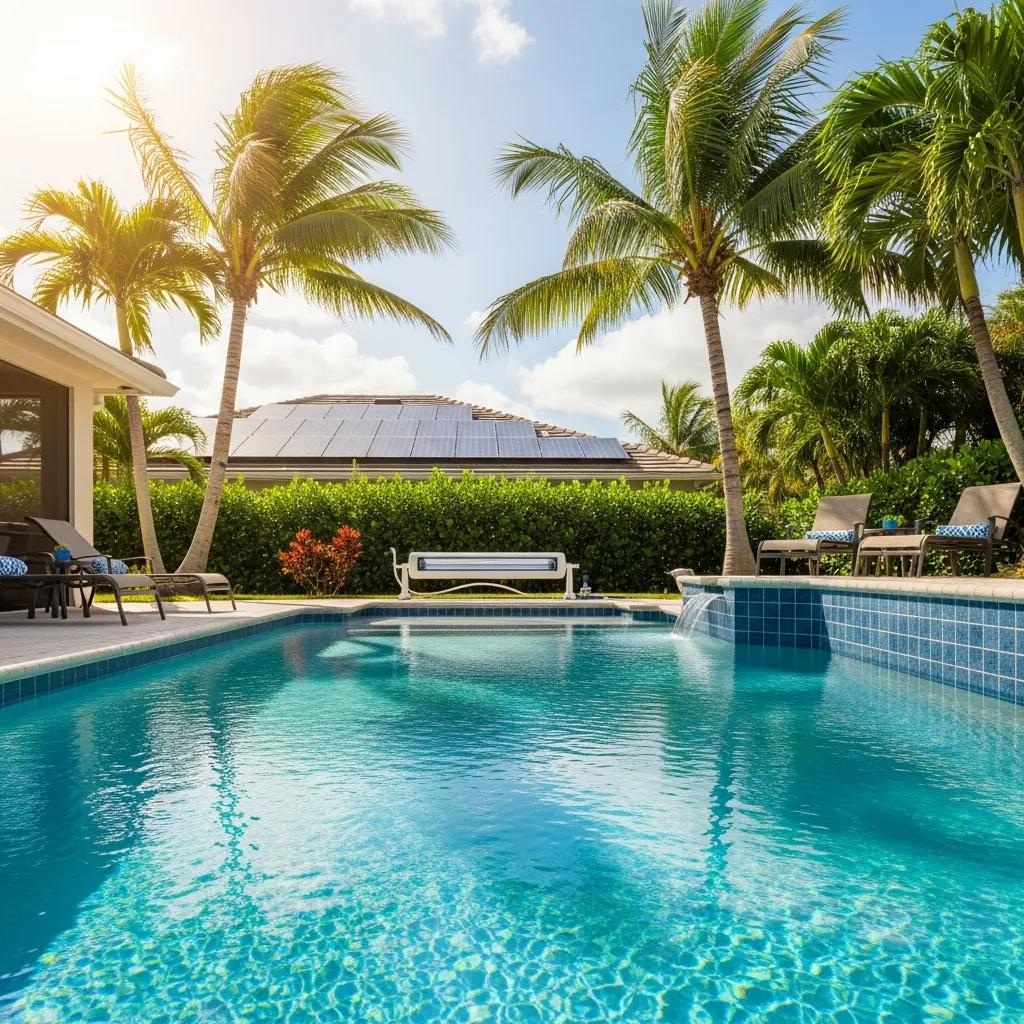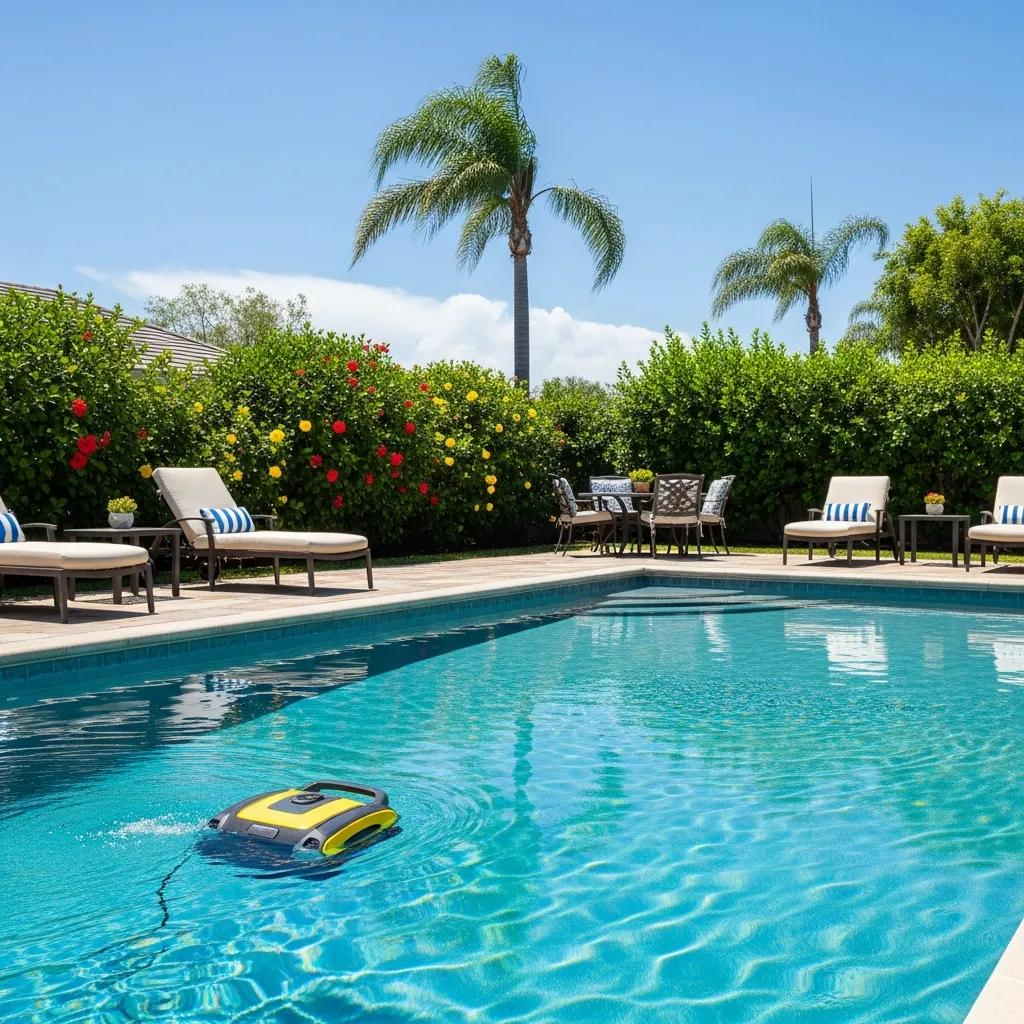
During the summer months in Cape Coral, pool water does not just evaporate more quickly—it also becomes more prone to chemical imbalance. Increased temperatures, more frequent pool use, and extra sunlight all contribute to changes in water chemistry. If you're not testing your pool water often enough, you could end up dealing with serious issues that are harder and more costly to fix later.
Pool owners sometimes notice cloudy water, slimy pool walls, or irritated skin after swimming without realizing these can be symptoms of poor chemical balance. Regular testing gives you the chance to catch small issues before they become big ones. It is not just about keeping the water clear; it is also about making sure your pool is safe for your family and helps extend the life of your equipment.
Why Regular Pool Water Testing Is Important
Skipping water tests in the summer creates several risks that many Cape Coral homeowners may overlook. Unbalanced chemicals can create the perfect conditions for bacteria and algae to grow. If chlorine drops too low or the pH shifts too much, the water cannot clean itself the way it should. This can quickly lead to sanitation problems that make your pool unsafe for swimming.
There are also bigger consequences beyond water safety. Unbalanced water can damage your pool’s surfaces, cause buildup in filters and pipes, and harm components like pumps and heaters. If water chemistry remains unchecked, long-term damage can happen faster—even in newer pools.
Another issue is the appearance and comfort of your pool. Changes like green water or slippery steps usually get treated with quick chlorine shocks, but that does not solve the underlying problem. Adjusting water chemistry blindly is more of a guess than a solution. Testing regularly keeps your pool balanced and prevents those problems from starting.
Optimal Testing Frequency for Summer Months
During the hottest weeks of summer in Cape Coral, pool water chemistry can shift quickly. High heat, bright sunlight, and regular swimming speed up changes in chemical levels. Waiting too long to test increases the chances of imbalance.
Here are some general recommendations for summer testing:
- Test chlorine and pH levels at least two to three times per week
- Check total alkalinity and stabilizer levels once a week
- Test calcium hardness and other minerals every two weeks
You may need to test more often if:
- The pool is used daily or by many swimmers
- Heavy rain or wind introduces extra debris into the pool
- You added chemicals and want to confirm the changes
- You frequently add water due to evaporation
For example, after a weekend gathering, your pool may look fine on the surface, but heavy use often reduces chlorine faster and shifts pH levels. Testing shortly afterward helps get the water back in balance before any issues appear.
Waiting until something looks or smells wrong often means the problem has already started. Testing on a good schedule keeps your pool stable and easier to manage.
Key Pool Chemicals to Monitor
Balancing your pool water during the summer means keeping a close watch on a few key chemical levels. Even small changes can lead to problems when temperatures are high and usage is frequent.
1. Chlorine
Chlorine helps fight algae and bacteria. It gets used up more quickly in the summer due to heat and sunlight. Keeping chlorine in the right range helps maintain clean, safe water.
2. pH
When pH is too low, the water becomes more acidic, which may cause eye or skin irritation and damage to pool equipment. When too high, chlorine does not work as well, and the water can become cloudy or form scale. A balanced pH level keeps the pool both safe and comfortable.
3. Total Alkalinity
Total alkalinity supports pH stability. With proper alkalinity levels, the pH stays steady and easier to manage. Low alkalinity often leads to sudden pH changes, while high levels can create buildup.
4. Calcium Hardness
This chemical measures how much calcium is in your water. Low calcium can damage plaster and other surfaces, while high calcium can lead to scaling. Keep it in check to prevent costly surface issues or buildup.
These levels should be measured consistently, especially after weather changes or heavy swimming. It is easier to adjust one out-of-range chemical than have to balance everything at once.
Signs Your Pool Water Needs Immediate Testing
Even with a regular testing schedule, some changes mean you should test the water right away. Physical and visual signs often point to hidden imbalances that can become bigger issues if ignored.
Watch for the following indicators:
- Cloudy or murky water that doesn’t clear with filtration
- A green tint to the water or visible algae growth
- Strong chlorine or chemical odors, signaling imbalance
- Skin irritation or itchy patches after swimming
- Burning or red eyes in multiple swimmers
- Slippery steps or surfaces in the pool
These problems can appear quickly, especially after a sudden heatwave or a full day of swimming. Even if your last water reading looked normal, chlorine and pH can shift rapidly with high use. If children or guests swim for hours on a hot day, chlorine may burn off quickly, leaving the pool prone to buildup or discomfort.
Spotting and responding to these signals early makes them easier to correct. Delaying action could require more time, effort, and added chemicals to restore balance.
Ensuring Proper Pool Water Testing
How you test your water is just as important as how often you do it. Different methods offer different levels of accuracy. In summer, precision matters more due to faster chemical change.
Here are some common options for water testing:
- Test strips: Quick and easy to use but often provide more general readings
- Liquid test kits: More accurate but require some attention and care to use correctly
- Electronic meters: Offer highly accurate readings and consistency but are more expensive and need calibration
No matter which method you choose, follow the instructions closely for best results. For example, test before adding more chemicals and allow the right wait time if retesting after a chemical adjustment. Store your test materials properly and replace them if expired, as results can be affected.
Keep a log of your testing. Recording outcomes helps you notice patterns or spot when an issue is starting. For example, if you see chlorine burn off more rapidly or pH bouncing up and down, there might be a deeper issue requiring prompt correction.
Many Cape Coral homeowners work with our professionals when reliable testing is needed. Our technicians use industry-grade tools and provide data that help you understand day-to-day changes in your pool. Reliable results allow better decisions with fewer surprises later.
Enjoy a Safe and Sparkling Pool This Summer
Keeping up with pool water testing during summer sets you up for smooth, enjoyable swimming all season long. It protects your pool from buildup, keeps equipment running longer, and reduces discomfort for swimmers.
Small shifts in water chemistry can grow into larger challenges if left unchecked. Frequent swimming, high temperatures, and even small rainstorms all play a part in changing your water balance. Consistent testing helps you act instead of react.
Knowing what to test and when helps keep control in your hands. Whether you handle basic tasks or bring in our technicians for help, staying informed helps keep problems minimal and swim time enjoyable. Your pool stays clean, balanced, and ready throughout the summer.
For reliable pool chemical testing in Cape Coral, trust our professionals to monitor and balance your water chemistry throughout the summer. Whether you notice changes or simply want to keep your pool running smoothly, Seemore Services, LLC is ready to help with thorough testing and clear advice. For a quick estimate or to book a service visit, please contact us today.
Customer Testimonials


Electric vs. Solar Pool Heaters: A Comprehensive Comparison
.png)
Pool Winterization Guide for Southwest Florida













